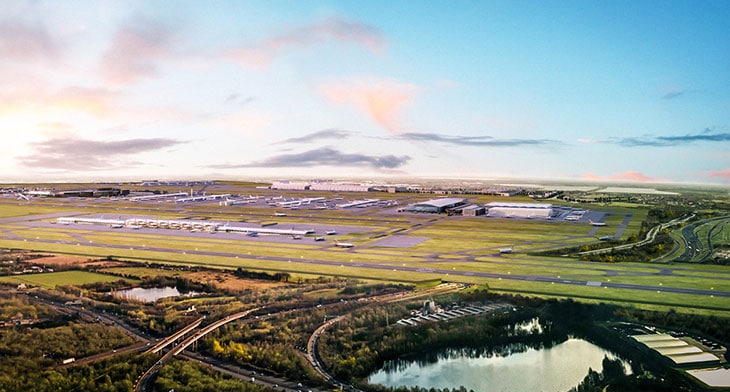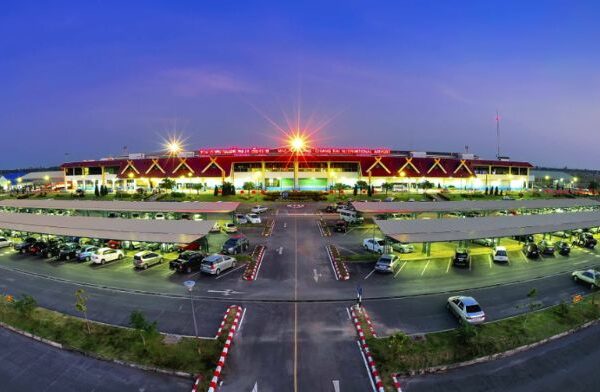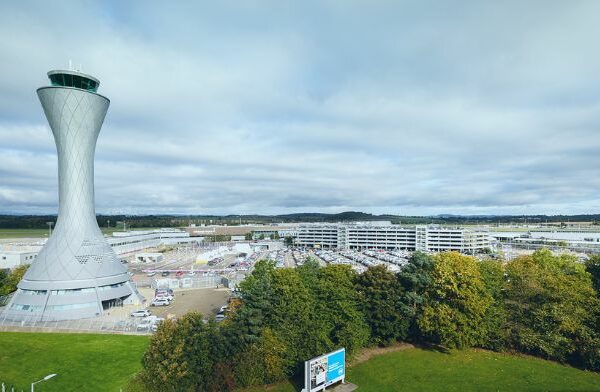


The UK government is being urged to speed up the domestic production of sustainable aviation fuel (SAF) by the aviation industry coalition Rise, or risk falling behind in the “global dash” for SAF production.
The warning comes following the Government’s publication last year of a delivery plan for the implementation of a revenue certainty mechanism for SAF, which won’t be fully delivered before the end of 2026. It also follows a poll conducted for Rise with more than 2,000 respondents, which shows strong support for a homegrown SAF industry, which would encourage new jobs and growth. Overall, 59% of those polled said they wanted to see a homegrown industry compared to 15% who backed importing the fuel and 26% with no clear preference.
In a letter to the Prime Minister, Rishi Sunak, Rise states that countries across Europe, the Asia-Pacific region, the Middle East and the United States are forging ahead with SAF production, while “Britain risks missing out on its own target of having five SAF plants under construction by 2025.”
These delays, said Rise, risk investment being distributed elsewhere and Britain losing out on a £10 billion boost to the economy as well as the creation of 60,000 jobs by 2050.
Commenting on the need for British SAF production, Heathrow CEO Thomas Woldbye said: “Producing SAF in the UK is vital to making this ambition a reality. We have proven that price mechanisms can work with our own oversubscribed SAF incentive scheme at Heathrow, and while it’s an encouraging step that the Government has committed to a broader revenue certainty mechanism, the UK needs to go further, faster. The current delivery plan will not see legislation until the end of 2026, a year later than the Government’s own commitment to five SAF plants under construction by the end of 2025.”
He was joined by Manchester Airports Group CEO, Ken O’Toole, who said: “If we want to attract investors to back SAF projects here rather than in other countries, we need to give them confidence there will be long-term stability in the price of the fuel that’s produced here. But as thing stand, an end of 2026 timetable to put legislation in place ot provide this is too later, and other countries are racing ahead.”
“Without British SAF production, the UK would ultimately be facing importing nine million tonnes of SAF every year for the nation’s world-leading aviation industry at an annual cost of up to £3 billion to the taxpayer. That would leave Britain exposed to a volatile and competitive global fuel market which risks pushing up prices for airline passengers,” the letter read.
Rise underlined that the opportunity to increase production for British SAF depends on the construction of plants in Port Talbot, Grangemouth, Teesside, Merseyside and Humberside with municipal waste and UK forest residue being used as feedstocks to convert into a low carbon aviation fuel.
“We cannot reach jet zero without SAF and we cannot afford to miss out on the opportunities domestic SAF production would bring to Britain.”
Meanwhile, Noaman Aladhami, Country Head of Alfanar, noted: “We are committed to a £1.5 billion investment in Teesside to convert waste to SAF but we cannot begin construction without a revenue certainty mechanism in place. We are all set to go in mid-2025 but the Government’s delivery plan suggests legislation won’t be in place until the end of 2026. That is a year and half delay on our project at a minimum. A delay to the creation of new high-quality jobs, a delay to delivering an economic boost for Teesside and a delay to the decarbonisation of aviation. We cannot afford for this to happen.“





